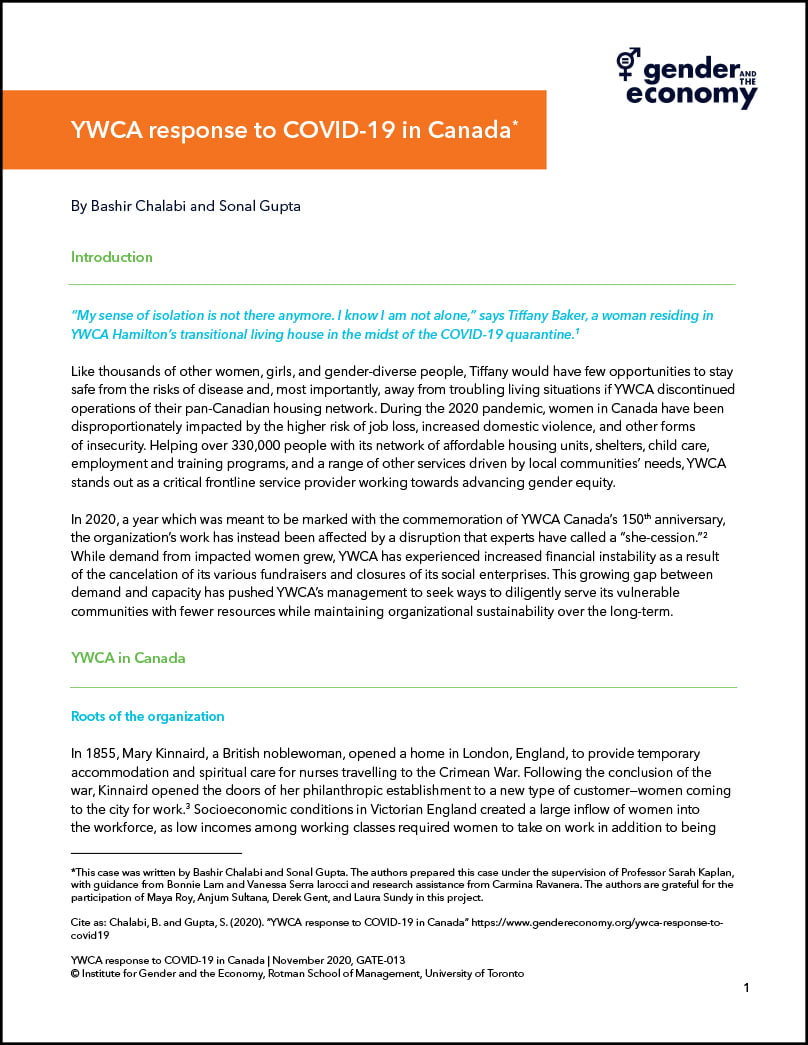Overview
During the COVID-19 pandemic, women in Canada have been disproportionately impacted by the higher risk of job loss, increased domestic violence, and other forms of insecurity. This case studies how YWCA responded to the pandemic’s impact on vulnerable communities and on its own resources by streamlining governance, ensuring safety, repairing capacity, and staying connected with its stakeholders.
Course Topics:
- Leadership
- Change management
- Non-profit governance
- Crisis response
- Stakeholder relations
Introduction:
“My sense of isolation is not there anymore. I know I am not alone,” says Tiffany Baker, a woman residing in YWCA Hamilton’s transitional living house in the midst of the COVID-19 quarantine.
Like thousands of other women, girls, and gender-diverse people, Tiffany would have few opportunities to stay safe from the risks of disease and, most importantly, away from troubling living situations if YWCA discontinued operations of their pan-Canadian housing network. During the 2020 pandemic, women in Canada have been disproportionately impacted by the higher risk of job loss, increased domestic violence, and other forms of insecurity. Helping over 330,000 people with its network of affordable housing units, shelters, child care, employment and training programs, and a range of other services driven by local communities’ needs, YWCA stands out as a critical frontline service provider working towards advancing gender equity.
In 2020, a year which was meant to be marked with the commemoration of YWCA Canada’s 150th anniversary, the organization’s work has instead been affected by a disruption that experts have called a “she-cession.” While demand from impacted women grew, YWCA has experienced increased financial instability as a result of the cancelation of its various fundraisers and closures of its social enterprises. This growing gap between demand and capacity has pushed YWCA’s management to seek ways to diligently serve its vulnerable communities with fewer resources while maintaining organizational sustainability over the long-term.

View and download the full case study (English/French)
__________________________
This case was written by:
This case was written by Bashir Chalabi and Sonal Gupta. The authors prepared this case under the supervision of Professor Sarah Kaplan, with guidance from Bonnie Lam and Vanessa Serra Iarocci and research assistance from Carmina Ravanera. The authors are grateful for the participation of Maya Roy, Anjum Sultana, Derek Gent, and Laura Sundy in this project.







